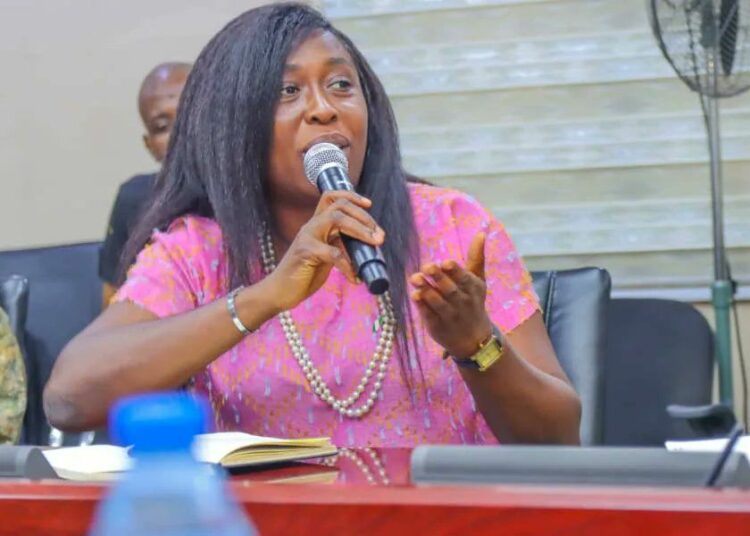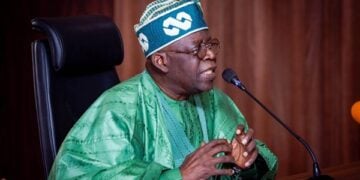The President Bola Tinubu administration has unveiled a grassroots empowerment initiative aimed at uplifting vulnerable and marginalised communities across Nigeria.
The newly established Presidential Community Engagement Office will spearhead efforts to directly engage with locals and deliver the government’s developmental agenda at the grassroots level.
Speaking at the launch of the Project South-West Initiative For Transformation Project (SWIFT) at the Presidential Villa in Abuja, Senior Special Assistant to the President on Community Engagement for the South-West region, Moremi Ojudu, emphasised that a core focus will be empowering underserved populations through strategic interventions.
“We’re talking about empowerment across key pillars like agriculture, education, enterprise development, and health,” Ojudu stated.
“This includes reviving primary healthcare centers which are the basic health institutions for communities.”
With offices being set up across all six geo-political zones of the country, the engagement teams will serve as critical liaisons between the Presidency and citizens on the ground.
Their role will be to effectively communicate government policies and ensure development programs reach the intended beneficiaries.
Ojudu highlighted that many communities have become disengaged and disconnected from the government’s efforts.
“They don’t even understand what we’re doing, and the government is doing so much for the people,” she said.
The new outreach drive seeks to bridge the gap through grassroots sensitisation campaigns and two-way communication channels, allowing citizen feedback.
“President Tinubu has a humane passion to restore the confidence of Nigerians and put the nation on an efficient pathway to progress,” Ojudu explained.
“Empowering communities through this local engagement is very key to achieving that vision.”
She said concrete steps will include boosting agricultural support for smallholder farmers, expanding vocational training for entrepreneurs, and improving access to basic education and healthcare in underserved areas.
The presidential aide stressed that the Tinubu administration is determined to uplift the most vulnerable segments of society and deliver a renewed sense of hope through this hyper-local outreach model.
On his part, Minister of Information and National Orientation, Mohammed Idris, applauded the efforts of the Presidential Community Engagement initiative in fostering collaborative solutions for sustainable development across the country.
Idris, who was represented by his Special Assistant, Research & Strategy, Saidu Ahmed, commended the leadership role such grassroots engagements play in re-orientating moral and socio-political values.
He emphasised that President Tinubu’s ‘Renewed Hope Agenda’ was carefully crafted to tackle development challenges through an inclusive approach harnessing knowledge, foresight in leadership, and understanding of the nation’s unique political economy.
The minister revealed that his ministry is currently hosting Ministerial Sectoral Briefings to facilitate democratic exchange of information between cabinet ministers and the populace, redefining engagement on service delivery.
“There is already a geopolitical consensus that President Tinubu has successfully maintained a path where today, we are assured he will deliver this Renewed Hope Agenda to the next generation,” Idris stated.
Highlighting recent multi-stakeholder collaborations like the High-Level Dialogue, the minister said such efforts underscore why cooperation across sectors is crucial for sustainable development goals.
Idris listed numerous policies and programs rolled out in the administration’s first year, including the National Single Window for revenue generation, private sector outsourcing initiatives, loans for SMEs, education financing, agriculture interventions, and infrastructure development funds.
He urged continuous dialogue like these breakfast meetings to enhance development and governance efforts driven by the principles of “initiative, enterprise, hard work and personal responsibility” core to the nation’s character.
Expressing confidence in Tinubu’s political philosophy, Idris stated, “This administration will leave a footprint ensuring we keep our promise of hope, united citizenship, dignity in foreign policy, climate security, sustainable energy and a dignified life for the girl child.”
The minister reiterated his belief that Nigeria will overcome economic challenges and achieve the future it aspires toward through the ‘Renewed Hope’ agenda’s sustainable development consensus.





